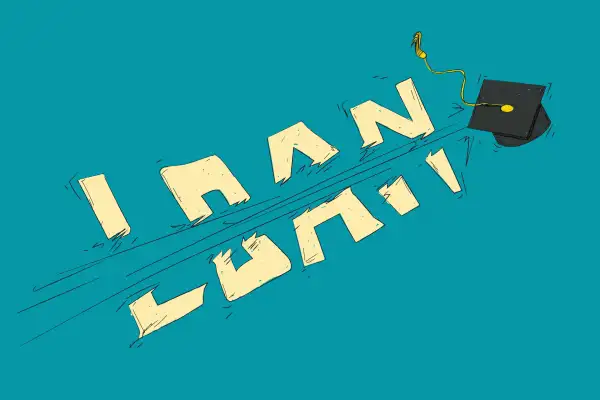The Function of Credit Ratings in Protecting Small Company Loans for Entrepreneurs
In the affordable landscape of entrepreneurship, securing a small business loan typically hinges on the critical element of debt ratings. A higher credit report rating can open up doors to beneficial loan conditions, while a reduced rating may provide considerable barriers.
Comprehending Credit Rating Scores
Credit report are vital numerical depictions of a person's creditworthiness, functioning as a critical consider financial decision-making for loan providers. These ratings are stemmed from a thorough analysis of an individual's credit score history, including elements such as settlement background, credit report application, size of credit scores background, new charge account, and kinds of credit report made use of. Typically varying from 300 to 850, higher ratings represent lower risk to lenders, while reduced ratings indicate higher risk.
The estimation of credit rating is accomplished by credit history bureaus utilizing exclusive algorithms, with one of the most commonly identified versions being FICO and VantageScore. Each design may evaluate factors a little in different ways, yet they all objective to provide a consistent step of credit risk. A solid credit report score shows the person's reliability in handling debt, making prompt payments, and keeping a healthy and balanced equilibrium in between credit rating utilized and offered credit score.
It is essential for individuals and company owner to comprehend their credit ratings, as these numbers can have far-ranging implications past individual finance. On a regular basis keeping an eye on one's credit score report, fixing errors, and taking on audio economic practices can dramatically boost credit rating, consequently boosting the individual's total monetary account and creditworthiness.
Importance for Financing Authorization
Recognizing one's credit history score is foundational, as it plays a significant duty in the procedure of car loan approval for small services. Lenders use credit score scores as a main statistics to evaluate the credit reliability of candidates.
In contrast, a low credit history could signal potential danger, leading loan providers to either decline the finance application or enforce stricter problems. This makes it necessary for entrepreneurs to be familiar with their credit standing, as it directly affects their capability to access capital. In addition, credit history work as a standard measure that enables lending institutions to simplify their decision-making process, guaranteeing effectiveness and uniformity. As small companies commonly require timely accessibility to funds for development and sustainability, maintaining a robust credit history ends up being necessary. Hence, understanding and handling one's credit history is a crucial part of preparing for loan applications and accomplishing business success.
Elements Affecting Ratings
Numerous elements contribute to the determination of a credit scores rating, each playing an essential duty in forming a person's credit score profile. A high ratio of used credit rating to offered credit history can suggest monetary overextension, detrimentally affecting credit reliability.
Length of credit report additionally elements into credit report computations, with a much longer credit rating normally seen extra positively. This statistics provides insight into the person's long-term economic habits, using lending institutions a broader point of view on their credit score monitoring abilities. In addition, the kinds of credit history in operation are taken into consideration, as a mix of charge account, such as revolving credit history cards and installment financings, can show the capacity to take care of various economic Click Here commitments.
Lastly, recent credit report questions might affect scores (pre approval student loans). Constant applications for brand-new credit report can suggest economic distress, therefore adversely impacting ball game. Each of these elements is important in the detailed examination of a credit history, impacting a business owner's capability to safeguard a little company finance
Improving Your Credit Rating
Improving one's credit rating is comparable to nurturing a garden; mindful focus to vital locations can yield considerable enhancements. Repayment history constitutes a substantial portion of a credit history rating; hence, establishing up automated pointers or payments can aid keep uniformity. High credit utilization proportions, or the quantity of credit score made use of family member to the debt restriction, can adversely affect scores.

Lastly, maintaining older charge account can favorably influence the average age of credit, which is another aspect in racking up designs. While brand-new credit score queries ought to be reduced to avoid short-lived rating dips, responsible credit score management over time will naturally cause rack up renovation, thus improving qualification for favorable little business loan terms.
Different Financing Choices
Entrepreneurs with less-than-ideal debt scores might discover these alternatives not just much more available but additionally customized to their distinct service needs. These systems generally offer faster authorization processes and even more flexible terms than traditional banks, usually taking into consideration elements beyond credit rating ratings, such as organization performance and cash flow.
Another practical choice consists of crowdfunding, where entrepreneurs can increase funding from a large pool of little capitalists through systems like Kickstarter or Indiegogo. This method not just offers funds but likewise confirms organization concepts via direct interaction with possible clients. Additionally, microloans, often offered by nonprofit companies, deal with local business and startups. They supply smaller lending amounts with lower rates of interest, making them excellent for business owners that call for minimal resources.
Invoice financing and merchant cash loan are additionally worth taking go to my site into consideration. The previous includes selling exceptional invoices to a lending institution at a price cut, while the latter offers a bear down future sales. Both options can improve capital without the strict credit history requirements of traditional lendings.
Verdict

These scores are obtained from a detailed evaluation of a person's debt history, encompassing aspects such as repayment history, debt application, size of credit rating history, new credit report accounts, and kinds of credit score made use of (pre approval student loans). A strong credit score shows the individual's reliability in taking care of debt, making timely payments, and maintaining a healthy and balanced balance between credit score used and offered debt
